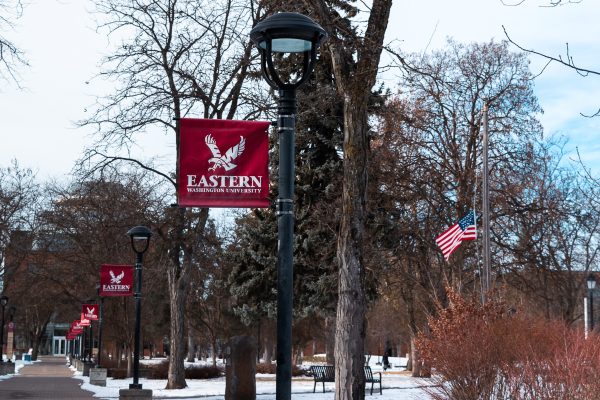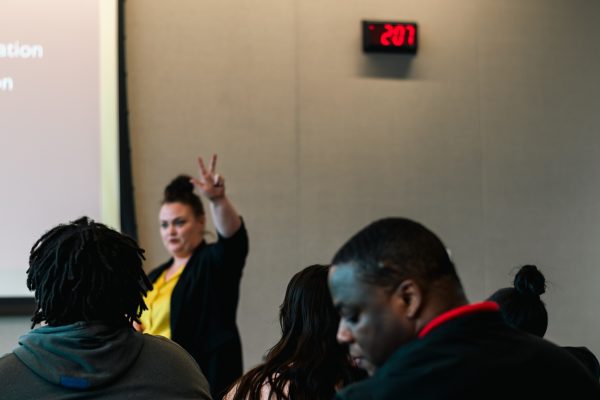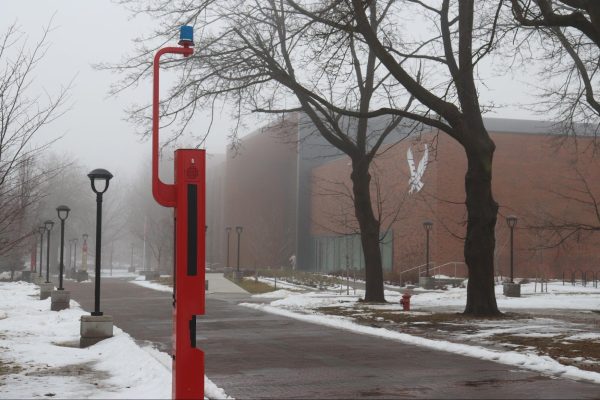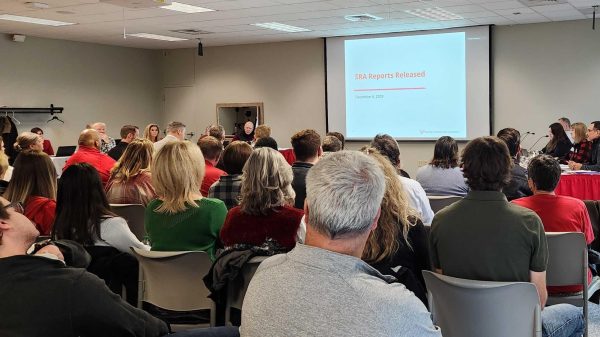Foodborne illnesses misunderstood
October 10, 2014
Just days before his sister’s wedding, EWU Alumnus Wilson Criscione was lying on a hospital bed, his body seemingly withering away and his arm impaled by an IV needle.
“I didn’t really think it was food poisoning,” Criscione said. “With food poisoning, you would think you’d be throwing up a lot, but I didn’t throw up once.”
He said he thought he had mild food poisoning earlier in the year: he threw up a few times, but was only sick for about one day.
“This was different,” he said.
After feeling sick to his stomach, Criscione said he started seeing blood coming from places it should not.
He went to the emergency room, where he was tested and given pain killers for severe abdominal cramping. “It felt like someone was strangling my stomach,” he said.
After a total of four days and three nights in the hospital, he lost 15 pounds. Along with a nearly $5,000 bill, he was given his diagnosis. Food poisoning from a rare strain of E. Coli bacteria.
Dave McKay, Eastern’s director of Dining Services, said most people do not realize just how serious food borne illness can be, and it is his job to address any claims that these illnesses could be linked to an on-campus food supply.
“As the American public, our mothers taught us, ‘Was it something you ate?’” McKay said. “The truth is though, we have the safest food supply in the world in the United States. Just for Eastern, for our standards, and what we monitor, we have had in the last five years, over 5 million sales or transactions through our operations. We have not one confirmed case of food poisoning.”
In Criscione’s case, EWU was cleared. He had not eaten any food on campus the week prior to his illness.
McKay said he and his staff are prepared to handle cases of food poisoning on campus, and though they are rare, they handle the issue in a very serious manner.
If a student suspects they got sick from an on-campus food source, his department starts to trace the timeline, asking students where and when they last ate and if they have allergies or an intolerance to any kinds of food.
According to McKay, the reality of food borne illness on campus is that it generally occurs on an institutional scale, meaning more than just one person will be sick.
“It’s not going to be one. Based on our volume. It’s going to be, I’m sorry to say, more than that,” McKay said. “We take it very seriously in how we approach it.”
McKay suggested students always go to the doctor first. EWU has a working relationship with the Spokane Regional Health district, who are able to talk with doctors on issues of confidentiality, and can rule out food borne illness quickly if it is not a factor.
Often times, McKay said foodborne illness is mistaken for food intolerance or the maladjustment a lot of students have with their immune system, metabolisms and other lifestyle changes associated with a transition from home to college.
Students are encouraged to utilize EWU’s comment card system which tracks these issues, along with other basic customer issues.
Although Dining Services employees are trained to take comment cards, McKay said the best way to handle complaints or praise is through the online comment card, available through the Dining Services website. This method allows Dining Services to have an electronic record of every comment card, and common issues can be addressed more efficiently.
Criscione said the E. coli was eventually traced back to Evergreen Sprouts LLC of Moyie Springs, Idaho, who ships their product to both Pita Pit and Jimmy John’s, two places where he ate in the days leading up to his food poisoning.
According to Criscione’s lawyer, Evergreen has been involved in lawsuits over food poisoning in the past, including a suit over salmonella in 2010.
Criscione said his reason for suing was due to the large medical bill and because he felt the incident negatively impacted his life. He missed a week of classes, a week of work at three different jobs and nearly missed the most important day of his sister’s life.
“I’m her brother. I should have been helping,” Criscione said. “My whole family was in town from New York and California. I hadn’t seen any of them in years, and they were in town for the week I was in the hospital.”
McKay said the best way to stop food borne illness is through prevention. He said 95 percent of his staff is ServSafe certified, training which goes above and beyond the basic blue health card.
He encourages students to know the times and temperatures for safe food handling, especially when bringing food home in take-out containers. The most crucial thing, he said, is good personal hygiene, and to wash your hands often with hot soapy water.
McKay said he is always available to students and their concerns about Dining Services.
“I’d encourage them to come see me. We really do want to know.”




















Sara Killinger • Jul 1, 2015 at 2:57 pm
Your infographic on the top did a great job of summarizing ways to avoid food poisoning. I recently returned from a trip to my family doctor after experiencing apparent food poisoning. I wish I would have been more aware of these tips to have avoided accidentally using my cutting board to chop vegetables after cutting raw chicken on the same board. I’ll keep these tips in mind in the future to help prevent food poisoning.